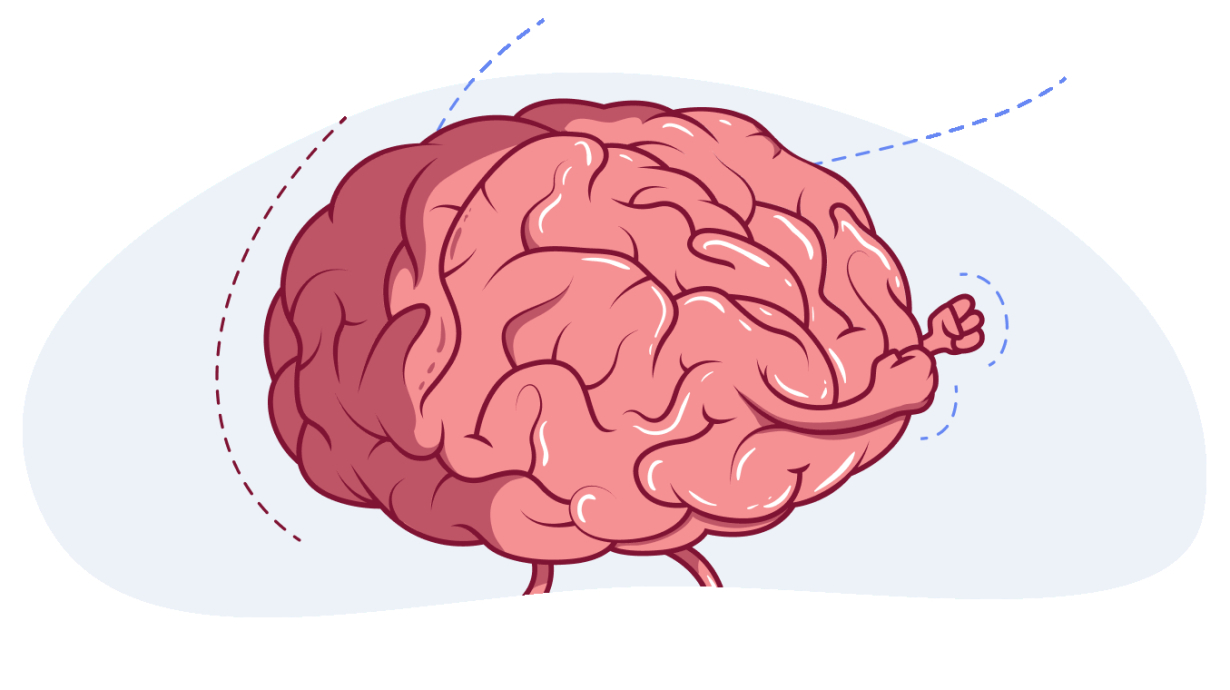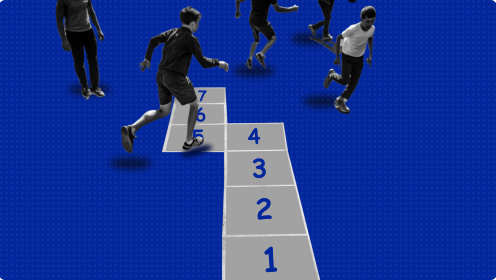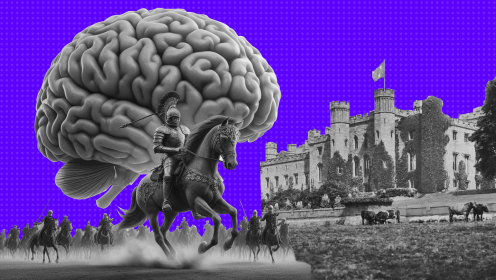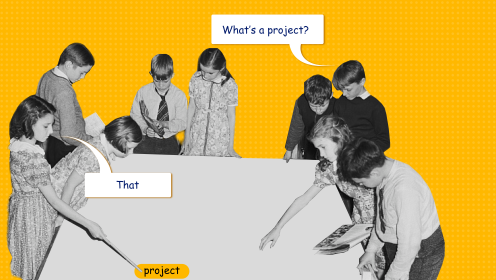When I wrote an article about brain-damaging foods, I realized that the danger comes not only from what we eat, but also from what we do. We have a lot of everyday habits that literally worsen brain function: from lack of sleep to unsociability and the habit of stupidly flipping through the tape in social networks — all this, to one degree or another, provoke stroke, Alzheimer's and Parkinson's diseases, and many other bad things.
What habits harm the brain
Brunch or lack thereof
Researchers from Chicago found out that the root cause of problems with the brain can be a late first meal. The study found that those who had breakfast later than 8:30 had higher blood sugar levels than those who always ate early. High sugar is the cause of diabetes, as well as premature aging of the brain.
To have breakfast early and keep your sugar levels normal, you need to get up early, and therefore go to bed early. Otherwise you will suffer from lack of sleep.
Lack of sleep
Speaking of sleep deprivation. It, like bad sleep, also negatively affects the work of the brain — personal efficiency decreases, lethargy and fatigue appear. But that's not all — sleeping less than 7 hours affects the brain like an overabundance of sugar in the blood — it also causes premature aging. Poor sleep slows down normal brain activity and the formation of new connections and cells, increasing the risk of developing Alzheimer's disease.
Smoking
Nicotine in cigarettes causes vasoconstriction, which causes less oxygen to enter the brain. Due to lack of oxygen in the brain, neurons die, and this is a direct path to Alzheimer's and Parkinson's diseases, or even worse — to brain ischemia or stroke.
Sedentary lifestyle
Scientists have proven that an inactive lifestyle changes the shape of neurons, which reduces cognitive abilities. Since I work five days a week in the office, this development scares me, so I have to walk home and walk more often. I'm also trying to get into the habit of physical training, but it's not really working out yet.
By the way, plunging headlong into exhausting workouts in the gym is a so—so idea, I hope you understand that. In order for the brain to work well, a 40-minute walk in the fresh air is enough — instead of taking a minibus or a car, it's better to walk once again. You can also try yoga, Pilates or sports games — it's not as exhausting as strength training, and not as boring as an hour of monotonous running on the track.
Living near polluted areas
Yes, it's not a bad habit, but it's part of a lifestyle that worsens brain function — this was proved by two scientists from the University of Southern California. It turned out that a polluted brain provokes the occurrence of Alzheimer's disease — PM2.5 elements released into the air by cars and factories cause problems with memory and cognitive abilities.
It is possible to contribute to the ecology of the area in which you live:
- Change your personal transport to public transport or use it less often — even a small contribution will reduce the emission of harmful particles.
- Annually pass the check-up of the body. If there is something wrong, you will quickly find out about it and be able to take action.
- Spend more time in nature. Walking enriches the body with oxygen and helps to strengthen health.
- Exercise and eat right. Physical training and healthy food also help to strengthen health and, accordingly, the resistance to all this nastiness that we breathe.
Multitasking
Sasha Mashkov has already once talked about how harmful multitasking is — the trick is that the brain is not able to work on several tasks at the same time — it's more like solving one task after another for the sake of a dose of dopamine, the hormone of joy. This mode of work increases the level of the stress hormone, which worsens brain function — it causes confusion of thoughts, irritability, aggression, as well as memory loss. Performing tasks one after another, of course, you get the coveted dopamine charge, but you don't notice how your brain becomes addicted.
Instead of trying to do everything at once, it's better to block time for each task — you won't lose concentration and pay attention to each task without being torn apart.
Hard physical labor
I'm not talking about training to strengthen the body, but about exhausting physical work. Scientists from the University of Copenhagen found that hard physical labor increases the risk of developing dementia by 55% due to the negative effect on the heart and blood flow to the brain.
If there are a lot of unavoidable physical exertion in your work, and for some reason you cannot change it, do not forget about proper nutrition and light workouts to strengthen the body.
Vitamin D deficiency
Vitamin D protects structural brain cells from destruction, and with a deficiency of this vitamin, a disease of the nervous system can develop that affects nerve cells — Parkinson's disease. This problem is particularly acute here in Russia, where most of the time it is foggy, cloudy and there is little sun (it is under its rays that our body produces vitamin D). So I strongly advise you to consume it in the form of a drug — the main thing is to consult a doctor first.
Excess of information
Thanks to neurophysiologist David Lewis, the concept of "information fatigue syndrome" appeared. With an excess of information that the brain does not have time to process, "analytical paralysis" occurs — the brain begins to "slow down" in order to have time to analyze everything, and this only reduces concentration and worsens memory.
In order to receive information in a dosed manner and not to clog the brain of everyone, sometimes arrange a digital detox - first limit the gadgets for 15 minutes and gradually increase this time.
Lack of "live" communication
Dutch scientists interviewed 2,000 people over the age of 60, half of whom suffer from loneliness. It turned out that these people have lower cognitive abilities than those who lead an active social life. Scientists attribute this to the emerging feeling of loneliness and the consequence of a lack of communication.
A funny (or not so funny) fact from this study: those who experience loneliness were more likely to have dementia, while the rest suffered from cardiovascular diseases.
Of course, these are not all habits that are harmful to the brain, but the 10 most striking and common. But what I want to say is that in most cases we don't even notice what harm these and other habits do to our brain until it's too late and cognitive abilities deteriorate completely. To avoid problems with the brain, I advise you to pay attention to what habits you use on a daily basis — and remove them from your life.


















